FRANKFORT, Ky. — Kentucky is set to become the 34th state to license certified professional midwives (CPMs). The Kentucky House of Representatives voted, 96-1, on Wednesday, March 13 to pass Senate Bill 84 (SB84), which establishes a state license for CPMs. Passage of the bill ends a eight-year legislative effort by the Kentucky Home Birth Coalition (KHBC) and 44-year effort to re-establish midwives as a state-recognized provider since the practice of issuing permits ended in 1975.
The bill now moves to Gov. Matt Bevin’s desk for signature.
“It has been a long road to seeing this bill pass. There have been families working for 44 years to get to this day, and Kentucky Home Birth Coalition is only the latest iteration of those efforts,” said Mary Kathryn DeLodder, volunteer leader and spokesperson for KHBC. “This marks the end of home birth midwives being underground in our state. We are looking forward to the Governor’s signature and the CPM Advisory Council being formed to begin the important work of creating regulations.”
Currently around 20 certified professional midwives serve Kentucky. Nearly 700 babies are born at home in Kentucky per year, a rate of 1.2 percent, which is above the national average.
“We are very excited to finally be here. It’s truly surreal! The road has been long but the incredible success we have here comes because of the relentless dedication of this incredible grassroots movement—the Kentucky Home Birth Coalition. Never underestimate the power of a motivated and cohesive group of consumers,” said Elizabeth Regan, president of Kentucky chapter of the National Association of Certified Professional Midwives.
Sponsored by Sen. Tom Buford (R – Nicholasville) and co-sponsored by seven other senators, the bill was passed in the Senate, 32-4, on Feb. 21 and concurred, 35-1, on March 14. The bill went through the Licensing, Occupations & Administrative Regulations committees in both chambers, each producing a committee substitute bill. Rep. Russell Webber (R-Shepherdsville) carried the bill in the House.
Kentucky is the 18th state since 2010 to pass legislation to license CPMs, joining neighboring states Indiana, Missouri, Tennessee and Virginia. It is the first since Alabama and South Dakota passed their bills in 2017. Efforts are ongoing in other states across the nation.
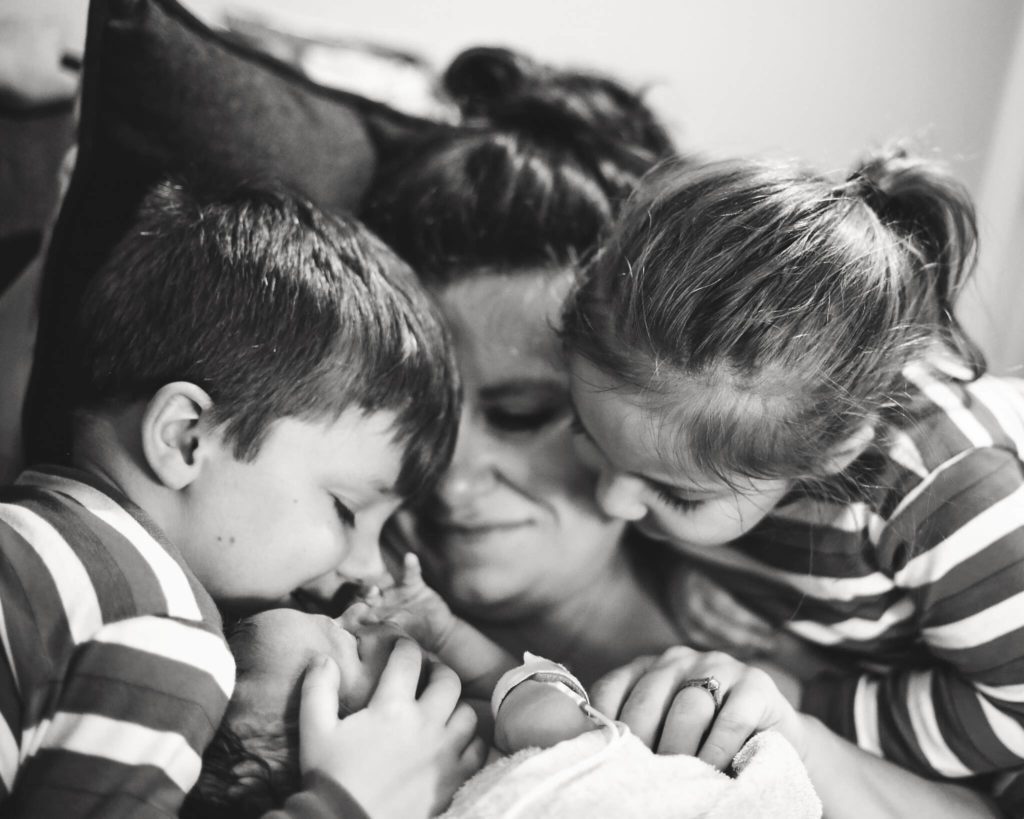
“The passage of this bill means so much for Kentucky families. It means increased access to midwifery care, for which there is a desperate need in Kentucky. This bill will bring more midwives to the state! It enables CPMs to better care for families by allowing them to practice to the full extent of their training and expertise. It will allow CPMs to integrate more effectively into the larger healthcare system, which translates to safer home births and safer transfers for those who need it,” said Regan, a certified professional midwife from Stamping Ground, Ky., in Scott County. “It’s a really good bill based on sound principles of public health policy. The process by which we came up with the final version you see today was the result of countless hours of research and discussion around what has and hasn’t worked in other states and what will work best for the families of Kentucky.”
The bill creates a diverse CPM Advisory Council under the Board of Nursing, including midwives, physicians and Advanced Practice Registered Nurses (APRNs), such as nurse practitioners and certified nurse midwives.
Certified professional midwives specialize in “low tech, high touch” care and provide care only to healthy women experiencing low-risk pregnancies. This includes a full course of prenatal care through six weeks postpartum care. CPMs do not provide services for people who have health circumstances that should be managed in a hospital and do not replace a pediatrician.
The bill also provides added security and safety for families by licensing only midwives who have been nationally certified by the North American Registry of Midwives (NARM) and met the required education and training criteria.
Kentucky Home Birth Coalition has championed midwifery legislation since 2012, increasing advocacy among midwives and home birth families who were often seen in the State Capitol and annex meeting with legislators. Children wore stickers of support such as “A Midwife Helped Me Out.” Consumers rallied around daily calls to action to meet with, email, call, text and engage on social media with their legislators, including annual Lobby Day events and filling committee hearing rooms.
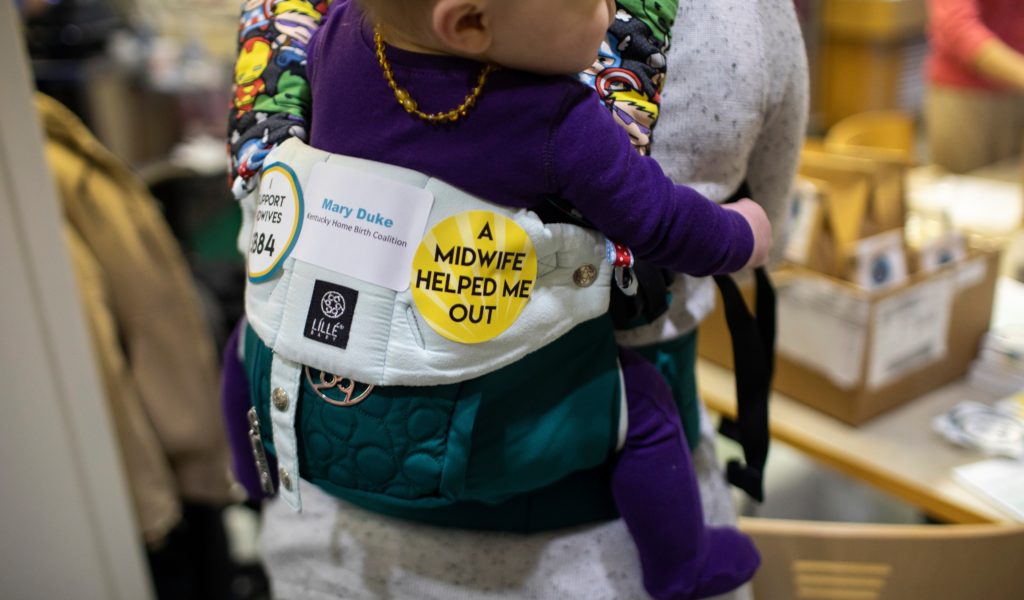
“Our success this year is a culmination of efforts and education that has taken place over the past several years. Several legislators have taken special interest in this bill over time, and their support has been critical. We couldn’t have done this without our volunteers. Also, credit also goes to representatives from KY NACPM and KY ACOG (American College of Obstetricians and Gynecologists) for coming together to really listen to each other to craft language that met the needs of all parties,” said DeLodder.
Passage of the bill created an immediate buzz nationally within the midwifery and birth community.
“The Midwives Alliance of North America (MANA) supports the passage of Kentucky Senate Bill 84 to license Certified Professional Midwives (CPM). Midwives offer patient-centered care, which is culturally sensitive as well as affordable, and can be coordinated with other providers as needed as a trusted part of the maternity care system,” wrote MANA President Vicki Hedley in a statement. “MANA is committed to all families having access to a qualified maternal and child healthcare provider who can best meet the needs of that particular family or community. We are thrilled Kentucky is ensuring that the hundreds of Kentuckians who birth at home each year have access to the experts in low-risk, community birth.”
MANA, established in 1982, is the largest membership organization for midwives who practice community or home birth in the United States, although its membership also represents hospital and birth center practitioners.

In the largest study ever conducted of planned home births, 89.1% of the 16,924 participants successfully and safely gave birth at home with a midwife. The study also reported a total rate of 5.2 percent of births that were transferred for a cesarean delivery. The U.S. hospital-based samples report a 32.8 percent cesarean rate. Of the 16,924 births reported in the study, 1,024 were vaginal births after cesarean (VBAC) with an 87 percent success rate. The most common reason for transfers to a hospital from a home birth is a failure to progress or fatigue.
Births associated with CPMs through planned home births are associated with high rates of breastfeeding (86 percent of newborns exclusively breastfed at six weeks old) and good Apgar scores – only 1.5 percent of newborns had a low Apgar score (less than 7).
The “Midwifery Model of Care” has been a point of international topic in recent years with the World Health Organization recently designated 2020 as the “Year of the Nurse and Midwife.”
“As maternal mortality rates continue to rise, many global organizations are urging countries to turn to midwives for safe, low cost alternatives to highly interventive birth,” Hedley said.
A 2014 United Nations report coordinated by the United Nations Population Fund, the International Confederation of Midwives and the World Health Organization advocated midwives as “unsung heroes of maternal and newborn health.” It encouraged investing in midwifery will benefit the healthcare system by allowing doctors and nurses to tend to other health needs.
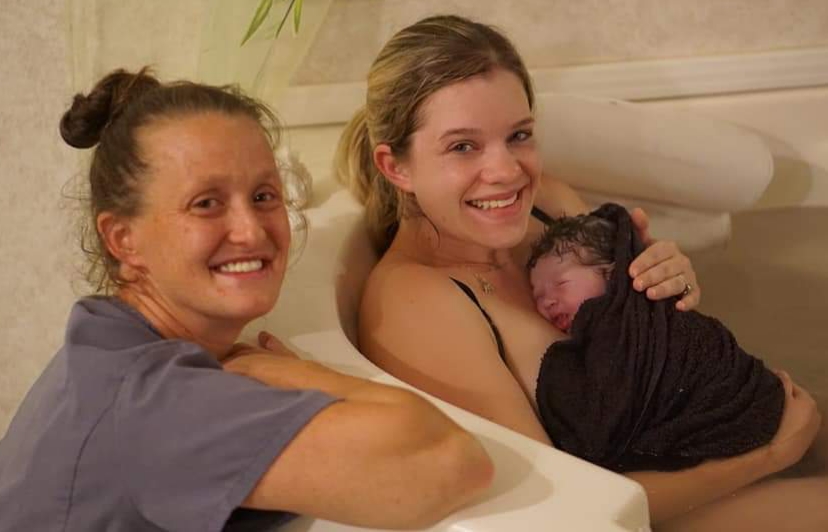
What is a certified professional midwife?
– Certified professional midwives (CPMs) are nationally credentialed midwives who provide primary maternity care. CPMs are the only maternity care provider specifically trained to attend births outside the hospital. CPMs are trained to provide health-promoting and preventative care that is evidence based and avoids unnecessary use of drugs and interventions. CPMs provide individualized, quality and cost effective care, are experts in the process of natural labor and the physiology of normal birth, are skilled in risk assessment to recognize circumstances that necessitate consultation with or transfer to other maternity care providers.
– Midwives have been able to receive the CPM credential since 1994, issued by the North American Registry of Midwives (NARM). The CPM credential received accreditation by the National Commission on Certifying Agencies (NCCA). The NCCA accredits the credentialing organizations of over 150 healthcare professions including Podiatrists, Nurse-Practitioners, Certified Nurse-Midwives and Nurse Anesthetists. Certification requirements can be found at narm.org.
What does SB84 do?
– Establishes the CPM Advisory Council appointed by and under the Board of Nursing. The council shall include one (1) ex officio member from the Board of Nursing, three (3) certified professional midwives, two (2) APRN-designated certified nurse-midwives, two (2) obstetricians licensed in Kentucky; one (1) practicing neonatal health care provider licensed in Kentucky; and one (1) member of the general public.
– Requires completion of birth certificate paperwork, newborn testing and annual reporting requirements consistent with requirements of other health care providers.
– Allows for open communication with healthcare practitioners, obstetricians and pediatricians and provide safety for midwives to openly identify themselves to caregivers to provide medical records should a transfer of care be needed.
– Allows CPMs to order medical tests necessary to confirm that home birth is a safe option, and establish a specific list of critical safety medications that CPMs may obtain and administer (but not prescribe), such as medication to manage sudden postpartum hemorrhage.
– Allows CPMs to attend vaginal births after cesarean section (VBAC), births of multiples multiple or breech babies with documented informed consent.
Sponsors of Senate Bill 84
Sponsor: Sen. Tom Buford (R – Nicholasville); Co-Sponsors: Sen. Julie Raque Adams (R – Louisville), Sen. David Givens (R – Greensburg), Sen. Mike Wilson (R – Bowling Green), Sen. Paul Hornback (R – Shelbyville), Sen. Denise Harper-Angel (D – Louisville), Sen. Reggie Thomas (D – Lexington), and Sen. Perry Clark (D – Louisville).
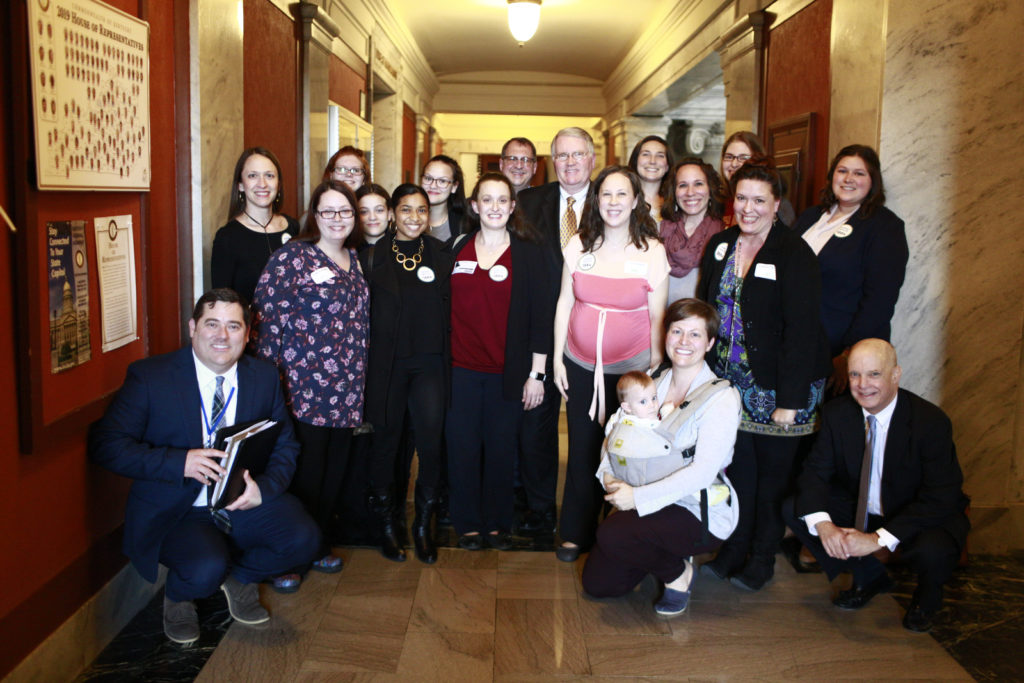
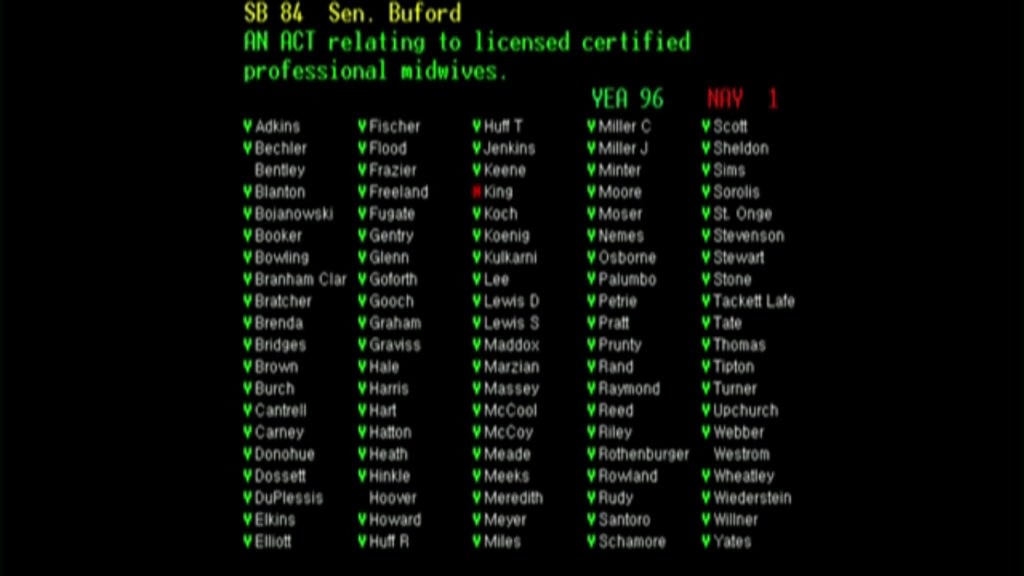
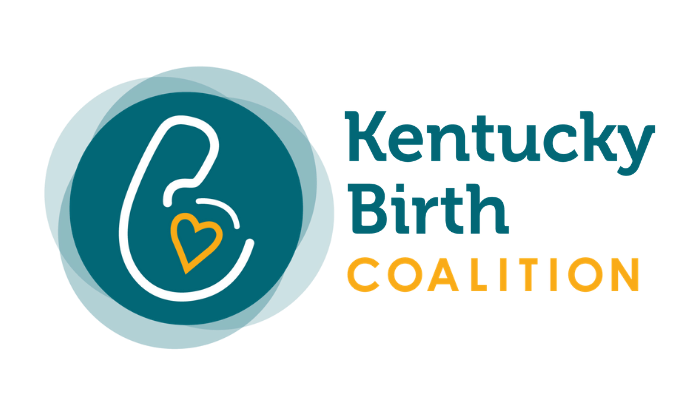
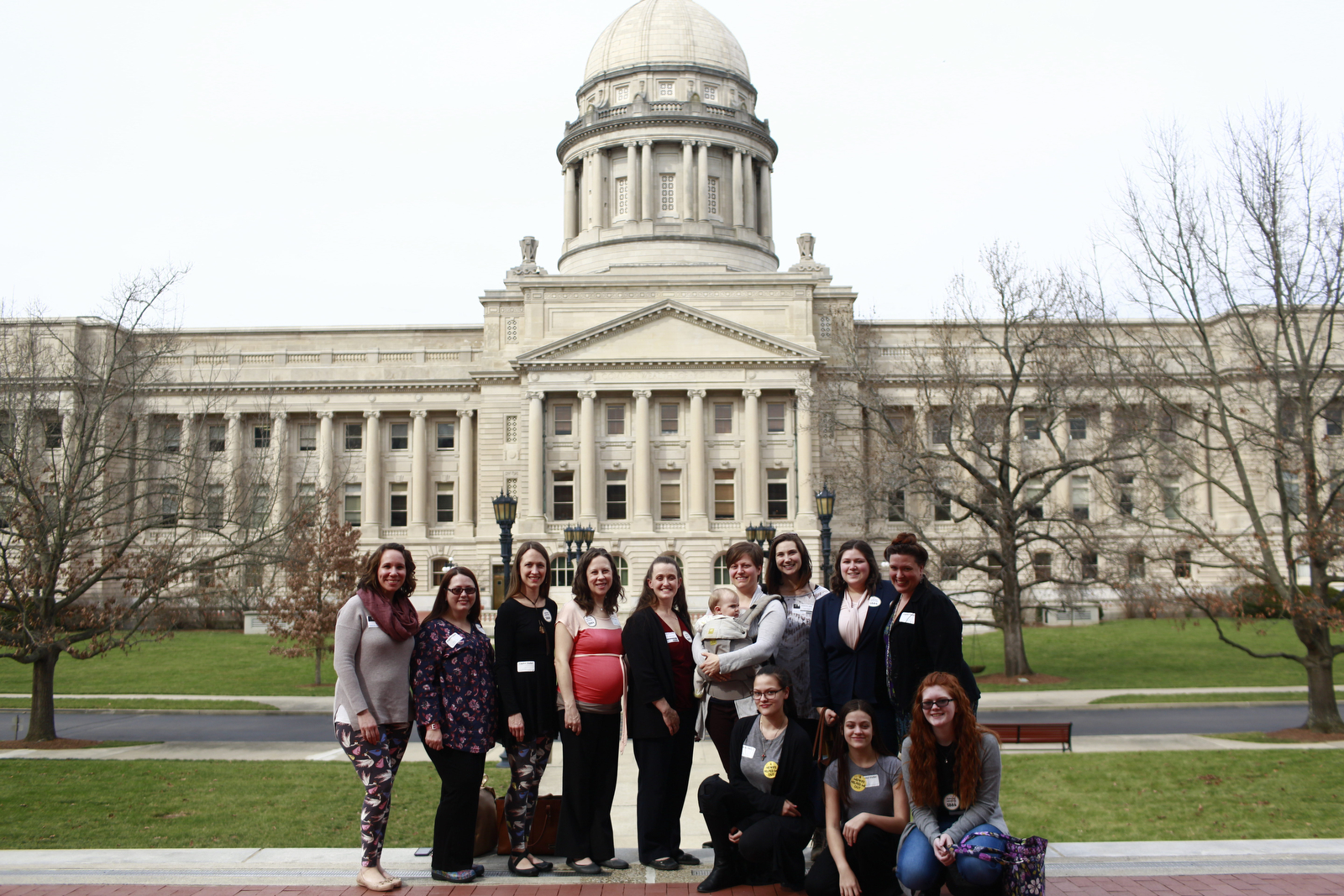
One comment